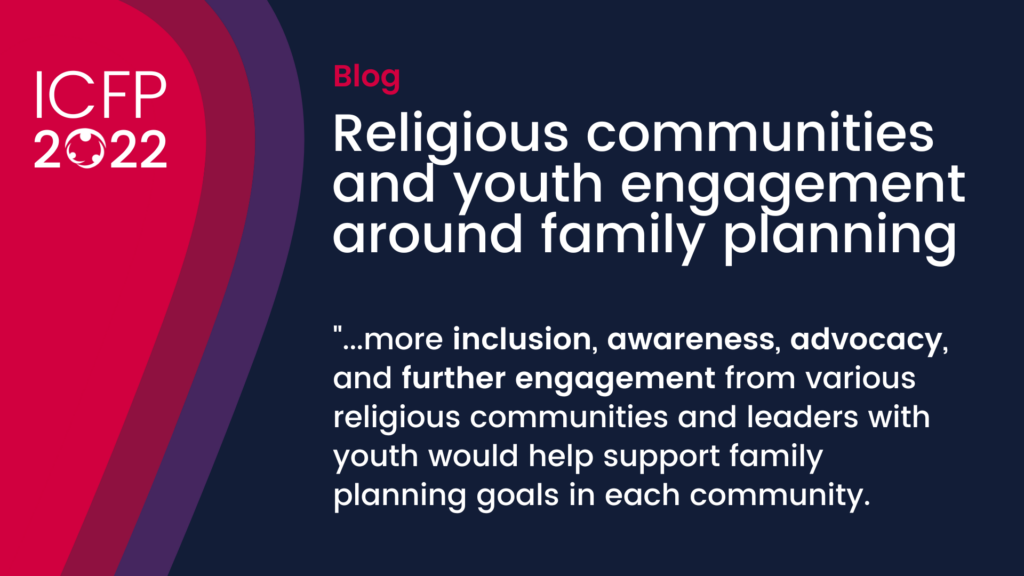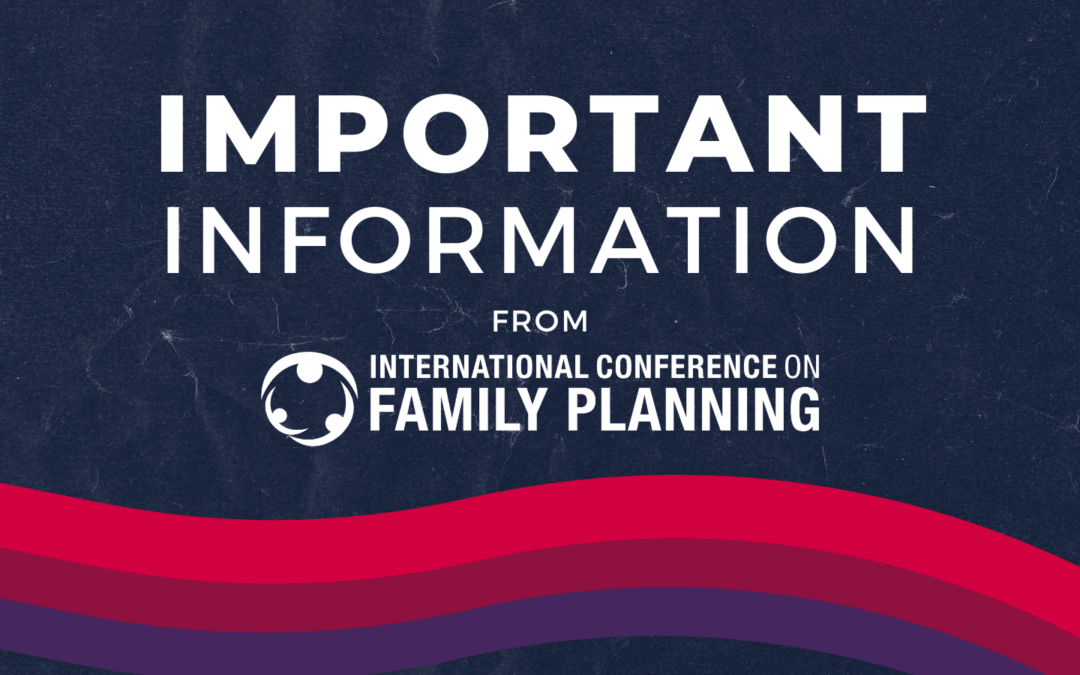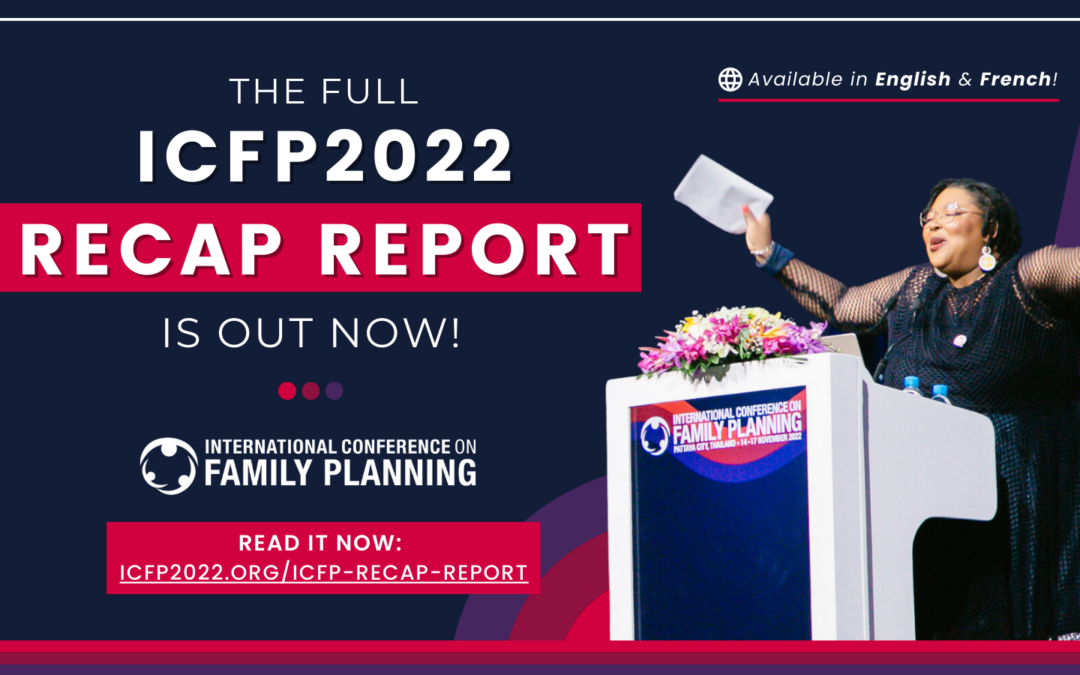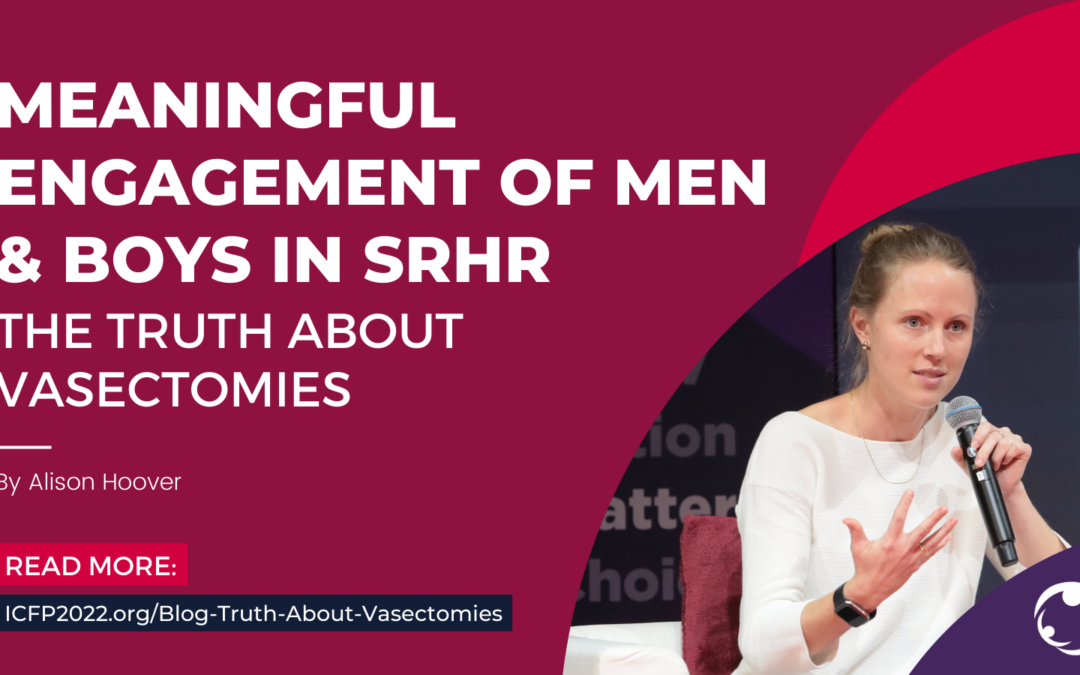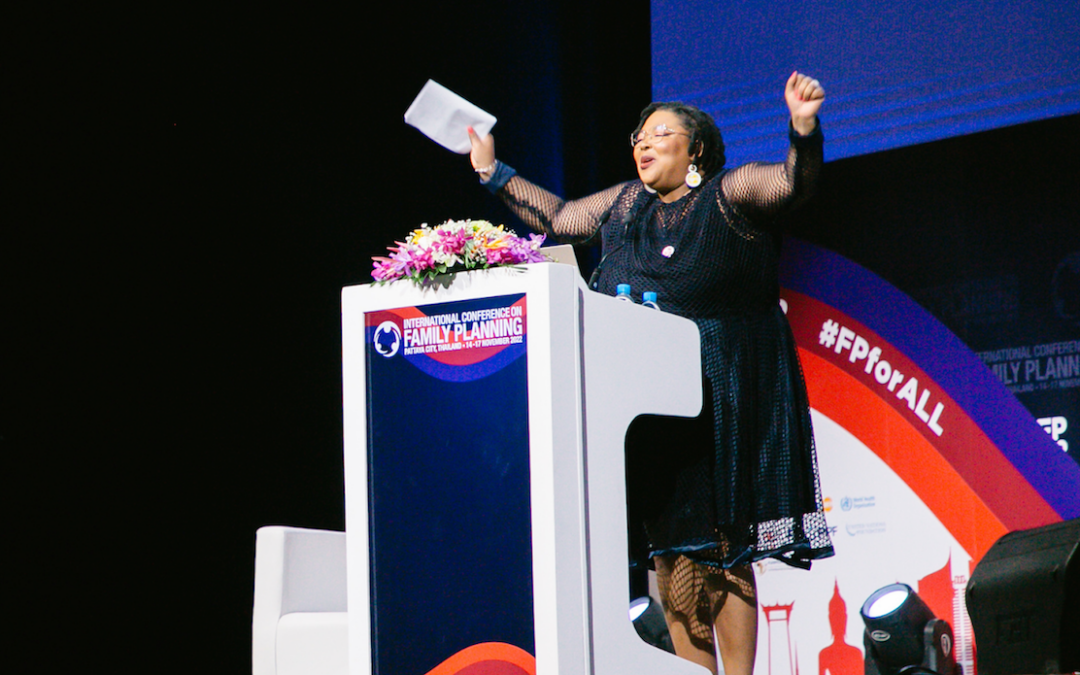by Peace Umanah, ICFP Trailblazer, Nigeria
peace.s.umanah@gmail.com
The essence of family planning in our communities today is that it promotes long-term health and access to safety for children, mothers, and a well-adaptable community at large. This is why I believe that voluntary family planning is a human right.(1)
Family planning is considered to be an essential factor toward gender equality, and women’s empowerment, and also a key factor in reducing global poverty.(1)I am pleased to have been chosen as an ICFP Trailblazer, a title given to young leaders (18-35 years old) to amplify and highlight the voices of young leaders in the family planning field.(2)
This blog highlights my beliefs and experiences from life in Nigeria on how religious actors and youth play a significant role in influencing family planning. For example, the rate of adaptation of family planning techniques, processes, and methods by different families in Nigeria has not witnessed the significant growth desired.(3) This could be attributed to the lack of engagement and contributions from youth and various religious actors in the country toward the general family planning goals.(3)
Religious organizations play a significant role in the areas of family life, particularly the two main religions in Nigeria (Christianity and Islam), and they have a major societal impact. I personally believe that most Christian ideas about family planning come from church teachings based on the interpretations of the meaning of marriage, sex, and the family. The Holy Bible according to St. Paul’s teachings admonishes that Christians should consider their general health very important, and additionally consider taking care of their family as a major responsibility for men (1 Timothy 5:8). (4)
This ideology has fostered the organization of many marriage seminars, teachings, and conventions specifically geared towards teaching young couples about antenatal care, STD prevention, abstinence, healthy diet, postpartum care, and birth spacing, thereby creating an attitudinal change and awareness for their individual health.
I believe the Islamic faith also supports family planning as the Holy Quran calls on mothers to breastfeed their child for at least two years. Thus, the great majority of Islamic jurists believe that family planning is obtainable in Islam.(5)
Another Islamic view according to the Prophet says, “He who wishes that his sustenance be increased for him and his death day be delayed, then he should pay attention to his kinsfolk.” (6) Paying attention to his kinsfolk here involves the provision of quality health to the wife/s and children (by spacing pregnancies), and supporting the various members of the family.
Although not always freely spoken about in gatherings, most religious leaders accept and consider family planning to offer many benefits, including empowering women to choose how many children they have, better health and survival of mothers and children, a reduction in poverty, and a better-educated population in Nigeria.
On the other hand, youth in Nigeria also use some of the modern methods and processes of family planning to secure safe family health conditions including preventing unwanted pregnancies through having safe sexual and reproductive health.
According to Beth Schlachter, former director of FP2020, “when you invest in women and girls, the good deed never ends. Barriers are broken and opportunities open up that not only lift women out of poverty but can elevate society and bring about economic gains.”(7) A case study of Kenya’s commitment and ranking in the FP2020 generated a report, show how religious and youth engagement fosters family planning goals and objectives.(7)
Considering the vital role that both religious bodies and youths at large play in their individual commitment to family planning, more inclusion, awareness, advocacy, and further engagement from various religious communities and leaders with youth would help support family planning goals in each community.
References:
- https://www.unfpa.org/family-planning.
- https://icfp2022.org/meet-the-trailblazers/
- Akamike, I.C., Okedo-Alex, I.N., Eze, I.I. et al. Why does uptake of family planning services remain sub-optimal among Nigerian women? A systematic review of challenges and implications for policy. Contraceptive Reproductive Medicine 5, 30 (2020). https://doi.org/10.1186/s40834-020-00133-6
- Bible Gateway. https://www.biblegateway.com/verse/en/1%20Timothy%205%3A8
- Farzaneh R. F., Islam and family planning. https://www.prb.org/wp-content/uploads/2004/09/IslamFamilyPlanning.pdf
- Bihar-ul-Anwar, vol. 74, p. 89.
- Kenya in top 10 countries on track to meet family planning target in 2019. https://fp2030.org/news/kenya-top-10-countries-track-meet-family-planning-target-2019.

